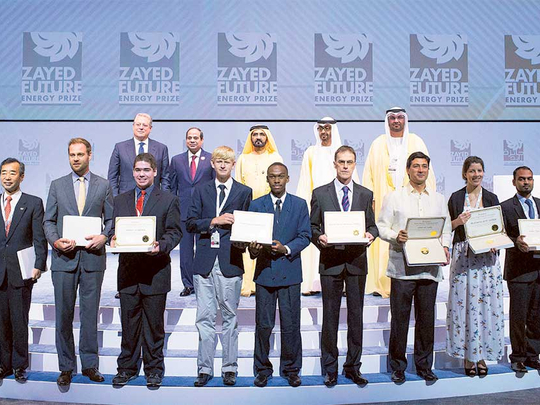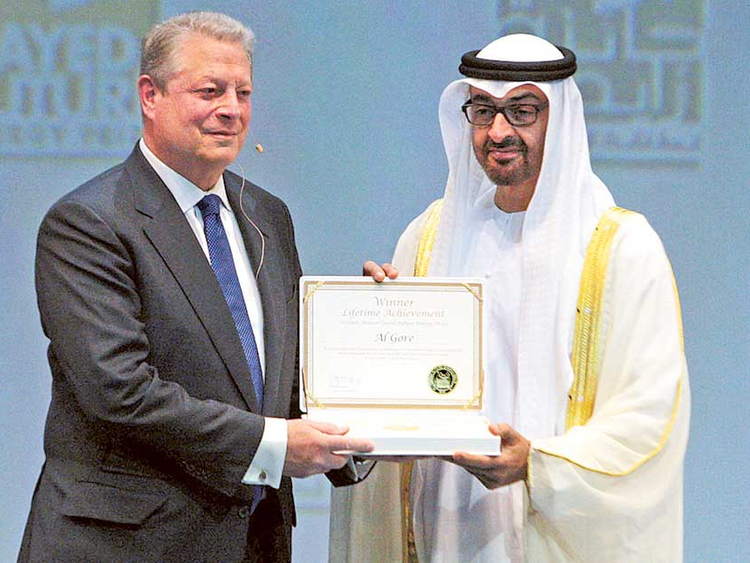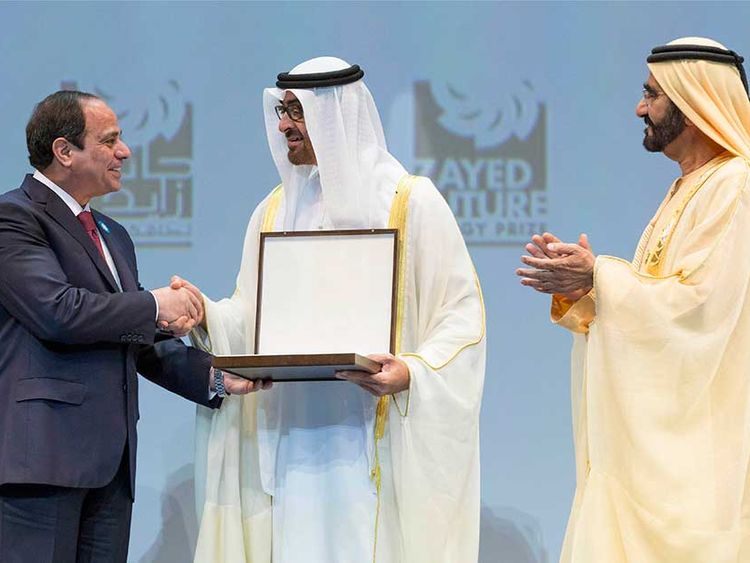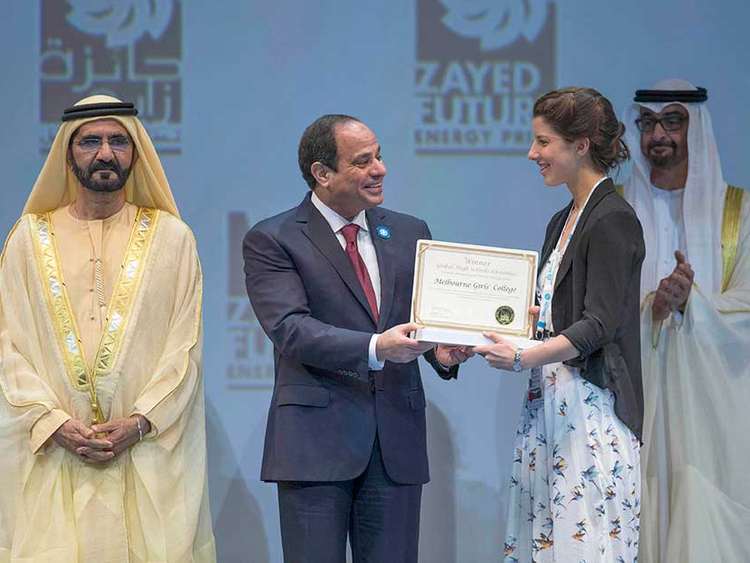
Abu Dhabi: The president of an Arab nation, a former US vice-president and five enterprising educational institutions were among the winners at the prestigious Zayed Future Energy Prize, which was announced at a ceremony in the capital yesterday.
The awards were handed out in 10 categories as part of the opening ceremony of the World Future Energy Summit (WFES), which began yesterday and will run until Thursday.
Former United States vice-president and climate change activist Al Gore received the Lifetime Achievement Award for his contributions to the field of sustainability and for efforts that aim to reduce climate change.
Speaking to the audience, Gore said “now is a dangerous and inspirational moment” in the fight against climate change, and that political will is the only component that is still needed to advance it.
In a new category, Egyptian President Abdul Fattah Al Sissi was presented the first Honorary Award for his commitment to sustainability. During his opening address, Al Sissi said Egypt is working to increase its reliance on renewables to 20 per cent by 2020, and to install 4,300 megawatts of wind and solar power over the next three years.
This year, the Prize received nearly 1,000 entries in eight competitive categories. Winners chosen were awarded a total of $4 million (Dh14.69 million).
A pair of small organisations that provide rural communities with energy were selected in two different award categories. M-Kopa Solar, awarded in the Small and Medium Enterprises category, provides sustainable solar power to 80,000 homes using a five kilowatt-system that includes three lights, a rechargeable radio and a mobile phone charging port. These residents in East Africa, many of whom live on less than $2 (Dh7.35) a day, can therefore use the money saved from buying kerosene to improve their standard of living.
On the other hand, Litre of Light was chosen under non-profit organisations for helping people in devastated communities make and install homemade solar lanterns.
“Our efforts have helped 350,000 homes and shops in 15 countries and, most importantly, it is a bottom-up approach that can help local residents light up devastated homes and streets within 72 hours. Without this, it can take up to a year for light to reach these communities stricken by natural disasters,” Illac Diaz, executive director at Litre of Light, told Gulf News following the award ceremony.
Japanese technology giant Panasonic was chosen for its solar research and renewable energy deployment efforts.
Under the Global High Schools category, five educational institutions were selected, one each from Africa, Europe, the Americas, Asia and Oceania.
Asia: Addu High School, in the Maldives will use the prize money to install a 45-kilowatt solar system to deliver all its power needs by 2015.
Africa: Waterford Kamhlaba United World College of Southern Africa in Swaziland will install solar panels and wind turbines to reduce reliance on grid electricity, while also setting up a biogas digester for cooking.
Americas: The Munro Academy in Canada will use the prize money to install biomass heating in a new school building and also construct 10 solar air heating collectors using recycle aluminium cans.
Europe: Petru Rares National College in Romania will use the funds to update inefficient heating and light systems, and aim to reduce energy consumption by 70 per cent with the use of LED lights.
Australia: Melbourne Girls’ College is planning to integrate sustainability education within the curriculum through an interactive renewable education centre.










